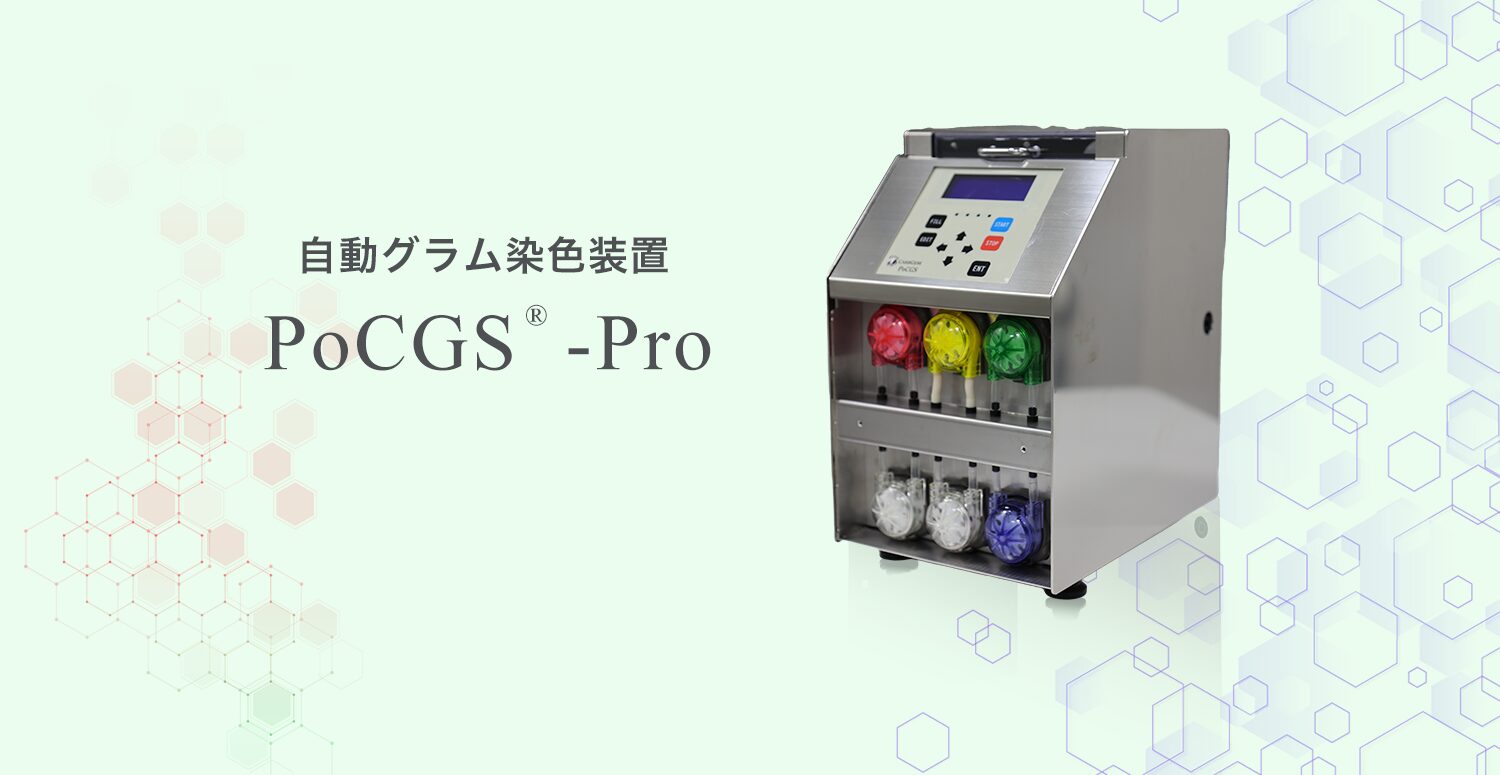CarbGeM Inc., and Kobe University have jointly developed an automated gram stainer “PoCGS®-Pro” which is now available as a medical device (specified maintenance controlled medical device). The device has been marketed by CarbGeM Inc. as a general medical device (controlled medical devices requiring special maintenance).
This product has been developed and tested in collaboration with the National Center for Global Health and Medicine, under the leadership of OHJI Goh, associate professor at the Research Center for Urban Safety and Security, Kobe University and the Department of Clinical Laboratory, Kobe University Hospital.

With the development of the first antimicrobial agents in the 20th century and their rapid spread throughout the world, drug-resistant bacteria have emerged, which have acquired resistance to antimicrobial agents and become less effective. Bacteria that are considered to be broadly or completely drug-resistant are known as “superbugs,” and are drawing attention as a global issue. In fact, it is estimated that in 2019, more than 1 million people worldwide died from drug-resistant bacteria, and by 2050, the annual number of deaths could be as high as 10 million.
In addition, treatment of “drug-resistant” bacteria is difficult because existing antimicrobial agents become ineffective, requiring a large number of drug prescriptions and alternative drugs. Moreover, the infection can be fatal if it occurs during surgery or when the immune system is weakened due to anticancer drug treatment. This is the “Antimicrobial Resistance (AMR) problem.
In order to prevent outbreaks of drug-resistant bacteria, it is important to correctly diagnose the cause of infection and treat it with appropriate antimicrobial agents. Focusing on the automation of gram staining, the most commonly used and important bacterial staining method, CarbGeM has developed the automated gram stainer “PoCGS®-Pro” together with Kobe University and other parties.
This staining method is used to classify and estimate bacterial species by staining bacteria in two different colors based on differences in cell wall structure. Gram-positive bacteria are stained purple and Gram-negative bacteria are stained red.
In clinical practice, this is the first step in identifying the causative organisms of infectious diseases.
Automated Gram Stainer “PoCGS®-Pro” completes stained specimens in a short time (about 6 minutes).
It is small enough to be installed anywhere, and staining, decolorization, and rinsing times for each reagent, etc. can be set and registered individually on the operation panel.
By automating gram staining, which requires specialized skills, the device can be used in emergency rooms, intensive care units (ICUs), high-level care units (HCUs), and community clinics, where rapid diagnosis is required, by shortening working hours and improving efficiency and standardization.

Product detail link (for medical professionals in Japan): https://carbgem.com/product/pocgs-pro/
English webpage (Research Use Only) : https://carbgem.com/en/product-en/pocgs-ie-en/
About CarbGeM Inc.
Through the fusion of biology and digital technology, we aim to apply our proprietary AI analysis technology to the field of bacterial infectious diseases. We also aim to contribute to the global challenge of drug resistance through open innovation with leading research institutions in Japan and abroad.
Address: 1-5-13, Jinnan, Shibuya-ku, Tokyo
CEO: Masakazu Nakajima
Website: https://carbgem.com/en/
Research Center for Urban Safety and Security, Kobe University
http://www.rcuss.kobe-u.ac.jp/English/index-e.html
Department of Clinical Laboratory, Kobe University Hospital